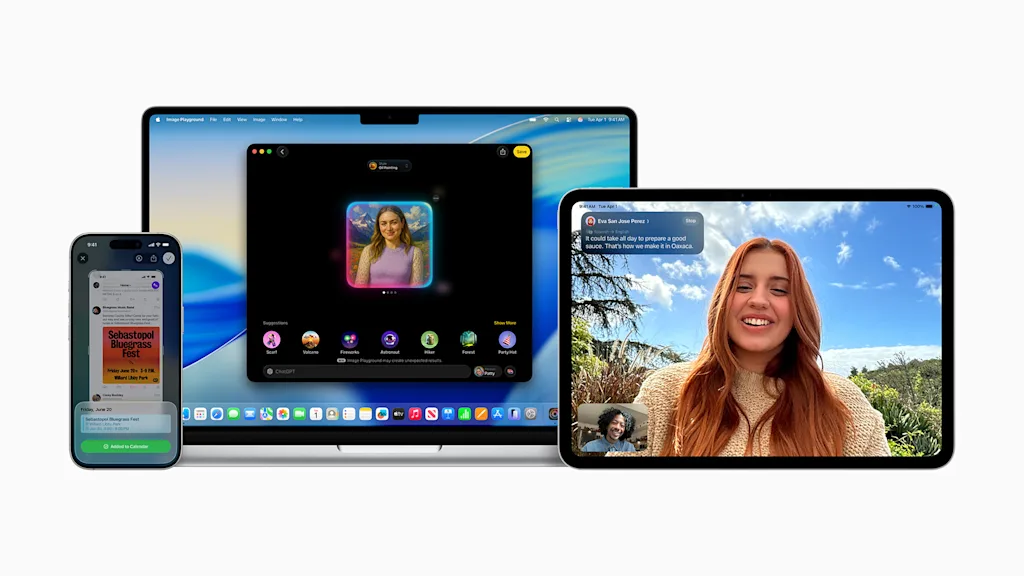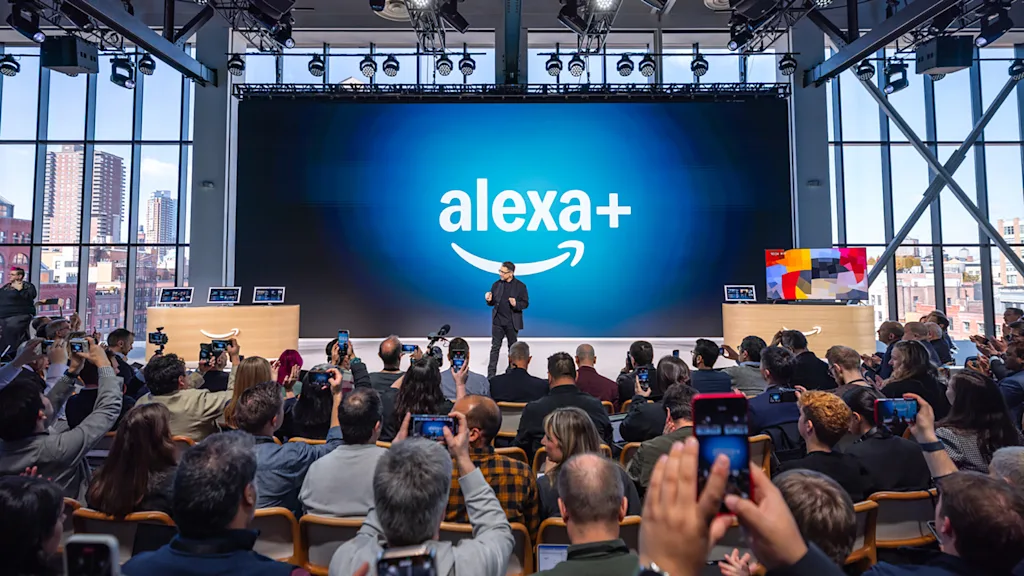A decade ago, we argued about which app would win your attention. Now the fight is over who mediates it. AI assistants are becoming the front door to everything we do with computers: search, shopping, media, work. Whoever wins that interface will decide what you see first, which option you consider “default,” much of the narrative surrounding it, and how much of your life is routed through their business model.
In that context, three strategies are colliding. Apple, following its instincts about privacy, is baking a privacy-forward layer called Apple Intelligence straight into the devices people already use, with on-device models and a new Private Cloud Compute for heavier requests. Amazon is pushing Alexa+, a paid, more agentic assistant that does real tasks end-to-end. And Meta is pitching a world of “personal superintelligence,” custom, high-context AIs tuned to you, not just to a platform. Each vision is coherent, each has a different set of incentives, and each points to a bifurcated future where a small group enjoys bespoke, high-performance “own” AIs while most people live inside a commercial, one-size-fits-most assistant.

Apple’s move is the most predictable and, in its way, the most radical: keep as much as possible on device, and when you must go to the cloud, do it inside a verifiable privacy envelope. That’s the promise behind Private Cloud Compute, which Apple describes as extending device-grade security into the data center; it underpins the new Siri and the system-wide writing, image, and notification tools announced at WWDC25. For developers, Apple also opened access to the on-device foundation model so apps can call into this layer without shipping your life to a third party. It’s the Apple playbook applied to AI: integrate, de-risk, and turn trust into lock-in.
Amazon is taking a different tack: make the assistant an agent that does multistep work, charge for it, and leverage the Prime bundle to drive adoption. Alexa+ is a re-architecture, not a skin: more natural language, third-party actions, and a subscription price of $19.99/month (free with Prime). Early access began in spring and rollouts are continuing to Echo devices with screens. The economics matter: paying for the assistant reframes it from a loss-leader to a product with its own P&L, and makes it easier to justify the heavy compute behind agentic tasks.

Google’s late push outlines what’s at stake: Gemini for Home will start replacing Google Assistant on Nest speakers and displays, with free and paid tiers and a more conversational, context-aware experience. When the wake word changes less than the behavior, you know the platform is serious: this isn’t a novelty feature, it’s a replacement strategy.
Then there’s Meta: Mark Zuckerberg has started using the phrase “personal superintelligence,” framing the goal less as an assistant that lives in an app and more as an AI that lives in your context, across devices, services, and knowledge. It’s not hard to see the architecture: open-weights models (from Llama 3.1 onward) tuned with your corpus, running locally where possible and on rented compute when necessary. The spend signals the seriousness — and the desperation.
Two Classes
What does all of this mean for real people? In practice, two AI classes are forming:
Class A is a minority with the time, money, or institutional support to build their own superpowered assistant: a personal knowledge base, continuous memory, custom tools, controlled privacy, and the ability to inject domain data (papers, contracts, code, archives) into every answer. The pieces already exist in the wild: open-weights models you can run yourself, Home Assistant integrations that give a local LLM real control over your environment, and maturing desktop stacks that make a DIY “second brain” less of a weekend hack and more of a workflow. It’s still geeky, but much less exotic than a year ago.
Class B is the majority, living with a default assistant from one of the big platforms — because it ships with the phone, or it’s bundled with Prime, or it replaced the thing on your kitchen speaker. Those assistants will be competent, even delightful. But they will also be shaped by the platform’s incentives: a shopping giant will optimize for commerce and partners; an ads company for discovery inside its ecosystem; a hardware company for brand and retention. That’s not a conspiracy; it’s the point of having an assistant at all. With ad-funded assistants from Meta or Google, the core incentive is still advertising: even as both companies insist they “don’t sell your data,” the ad-tech plumbing runs on real-time bidding that broadcasts behavioral and device signals to a long tail of intermediaries during each auction, a practice regulators and researchers have criticized for pervasive data leakage. These assistants will keep turning your life into auctionable signals, and most people will accept the trade because convenience masks the true cost of lost privacy.
The market sorting itself
Notice the new paywalls around capability: Apple bakes intelligence into devices you already bought, Amazon sells a tier with heavier agentic skills, Google is teeing up free and paid versions of Gemini for Home. This is how the market sorts itself: casual users get a competent baseline, power users pay for more autonomy, and enterprises build their own stacks. In the middle, a long tail of enthusiasts is stitching together local models, personal data, and automations that feel like a bespoke service . . . because in a sense, it is.
If the business model is ads, expect the assistant to optimize for monetizable moments, and for the data it gathers about you to keep feeding a market that regulators are still trying to corral, from cookie deprecation U-turns to ad-tech antitrust trials. As usual in ad-funded models, your attention (and the exhaust of your behavior) is the product on the shelf: They won’t sell your data as a CSV, but they’ll sell access to your profile, again and again, at auction speed.
This split matters for power and for culture. If your assistant knows your files, your history, your tastes, and your constraints, it stops being a chat box and starts being a context engine. It will presort the world for you. That can be liberating: less friction, fewer tabs, more time. It can also be dangerously normative: a single vendor’s defaults become your defaults, not because you chose them, but because they came baked into the thing that listens when you talk. The more decisions we outsource to agents, the more we should care about whose agent it is.
What to watch for
What should we watch for next? Three simple questions cut through the marketing:
- Who pays? If you don’t, you’re the product. If you do, what does the meter measure: tokens, tasks, or time? Alexa+ makes that trade explicit, while Google’s reversal on cookie deprecation shows how hard ad-funded ecosystems let go of the data firehose.
- Where does your context live? Apple’s pitch is verifiable privacy with PCC; Meta’s is open weights and portability; Google’s is “Gemini everywhere.” The details — not the slogans — decide if your assistant remembers for you or about you.
- Can you take it with you? The early signs of a DIY tier, like Home Assistant, local LLMs, or “second brain” workflows, suggest a path where your assistant is an artifact you own, not a subscription you rent.
There’s also the culture of default. Most people won’t assemble a personal superintelligence: they’ll use whatever came with the phone, the speaker, or the social app, and those assistants belong to companies whose revenues depend on profiling and targeting. Europe’s courts and regulators keep pushing back on that model, and in the U.S., the ad stack still sprays data through auctions at internet scale. The convenience is real — so is the privacy bill. The majority will live inside assistants that treat privacy as collateral, not because they’re malicious, but because they underestimate what it’s worth.
How to choose
My bet: we’ll end up with both worlds at once. A small but growing cohort will assemble their own “personal superintelligence” (
Войдите, чтобы добавить комментарий
Другие сообщения в этой группе

In the late 1970s, a Princeton undergraduate named John Aristotle Phillips made headlines by designing an atomic bomb using only publicly available sources for his junior year research project. Hi

Having $1 billion isn’t enough these days. To be seen among the richest of the rich, you now need your own private sanctuary.
For some, that means a sprawling compound. Increasingly, tho

Fantasy football draft season is here—and it’s no longer a boys’ club.
Of the 62.5 million people playing fantasy sports in the U.S. and Canada, 35% are women, according to the Fan

Elon Musk’s AI company xAI

It’s been a long time coming: Taylor Swift and Travis Kelce are finally tying the knot.
In a joint Instagram post captioned “Your English teacher and your gym teacher are get

Apple will host its

Elon Musk on Monday targeted Apple and OpenAI in an antitrust lawsuit alleging that th
